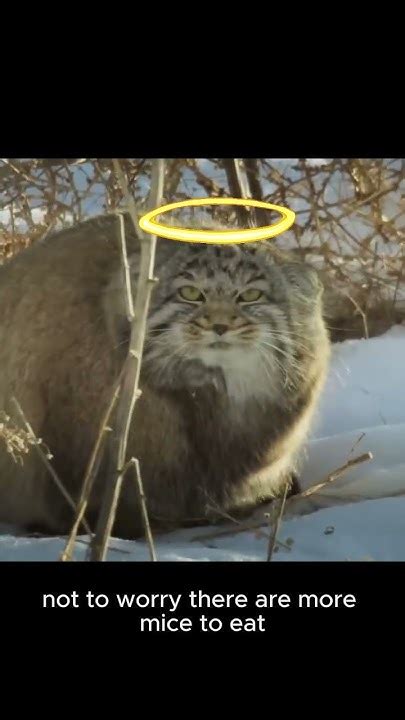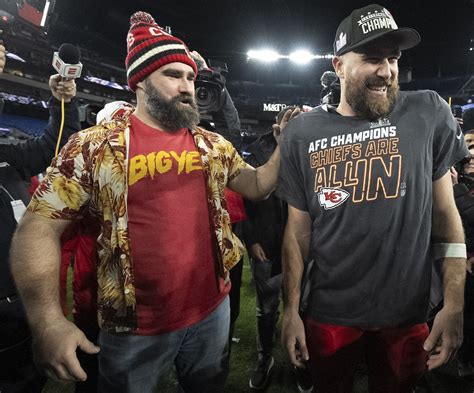
A domestic cat named Benny, whose hunting attempts are marked by comical ineptitude, has become an internet sensation, amassing millions of views on social media platforms. The viral video showcases Benny’s repeated failures to capture even the simplest of prey, highlighting a stark contrast between his domestic lifestyle and the innate predatory instincts typically associated with felines.
A video of Benny, a ginger cat, failing spectacularly at basic hunting tasks has garnered widespread attention online, showcasing the cat’s distinct lack of predatory skills. The footage, initially shared by Benny’s owner, quickly spread across various social media platforms, turning the feline into an overnight viral sensation. “It’s like he’s never seen a bug before,” commented one user, reflecting the general amusement and disbelief surrounding Benny’s hunting attempts. The video, which features Benny attempting to catch insects and other small creatures, underscores the vast difference between the survival skills of wild cats and the comfortable existence of their domesticated counterparts. Experts suggest that Benny’s case may be an extreme example of how domestication can alter natural instincts, leading to a decreased reliance on traditional hunting behaviors. This has sparked a debate about the role of genetics versus environment in shaping animal behavior.
The viral video illustrates Benny’s repeated and often clumsy failures to secure even the most straightforward catches. Whether he is misjudging distances, tripping over his own paws, or simply losing interest mid-chase, Benny’s hunting endeavors are consistently unsuccessful and undeniably entertaining. This comical ineptitude has struck a chord with internet users, many of whom have shared similar stories about their own pets displaying unexpected or amusing behaviors. The video also prompts a broader discussion about the nature of domestic animals and the extent to which their instincts have been modified by selective breeding and a sheltered existence. “We’ve had cats for years, and none of them have been quite this… challenged,” said Benny’s owner in a statement released online. The owner further emphasized that Benny’s inability to hunt has no impact on his quality of life, as he is a well-fed and much-loved member of the family.
Domestication, a process spanning thousands of years, has fundamentally altered the behavior and physiology of many animal species. In the case of cats, selective breeding has favored traits such as docility, friendliness, and adaptability to human environments. While these traits have made cats ideal companions, they have also led to a reduction in certain natural instincts, including the drive to hunt. Benny’s case represents an extreme example of this phenomenon, where the cat’s hunting skills appear to be almost non-existent. This raises questions about the extent to which domestic animals retain the behavioral traits of their wild ancestors and the implications of these changes for their overall well-being. Some researchers argue that while domestication can reduce the intensity of certain instincts, it does not eliminate them entirely. They suggest that even domestic cats retain a basic predatory drive, which may manifest in different ways, such as playing with toys or chasing laser pointers. Others contend that domestication can lead to a more significant alteration of natural behaviors, particularly when animals are provided with a constant source of food and shelter. In Benny’s case, it is possible that his lack of hunting skills is due to a combination of genetic factors and environmental influences.
The virality of Benny’s video highlights the internet’s fascination with animal behavior and the ways in which animals can both surprise and amuse us. Videos of animals displaying unusual or unexpected behaviors often go viral, generating millions of views and sparking widespread discussion. This phenomenon reflects a growing interest in the lives of animals and a desire to understand their motivations and experiences. It also underscores the power of social media to connect people through shared experiences, such as the enjoyment of watching a clumsy cat fail at hunting.
Furthermore, Benny’s story touches on the broader themes of nature versus nurture and the role of environment in shaping behavior. While genetics undoubtedly play a role in determining an animal’s physical and behavioral traits, the environment can also have a significant impact. Animals that are raised in a sheltered environment, with limited exposure to natural stimuli, may develop differently than those that are raised in the wild. In Benny’s case, his lack of hunting skills may be partly attributable to his domestic lifestyle, which has provided him with a constant supply of food and shelter, reducing his need to hunt for survival.
The video also raises ethical questions about the responsibility of pet owners to ensure that their animals are able to express their natural behaviors. While it is not necessary for all domestic cats to be proficient hunters, it is important to provide them with opportunities to engage in activities that stimulate their predatory instincts, such as playing with toys or exploring their environment. By providing cats with these opportunities, owners can help to improve their physical and mental well-being and prevent them from becoming bored or frustrated.
In addition to his online fame, Benny’s story also highlights the variability within species. Not all cats are created equal, and individual personalities and skill sets can vary widely. While some cats are highly skilled hunters, others, like Benny, may be more adept at cuddling and providing companionship. This diversity is what makes cats such fascinating and beloved pets.
The comments section of Benny’s viral video is filled with stories from other cat owners who have experienced similar situations. Many users have shared anecdotes about their own pets displaying unexpected or amusing behaviors, ranging from a fear of cucumbers to an obsession with chasing shadows. These stories serve to reinforce the idea that animals are individuals with unique personalities and quirks, and that their behavior is not always predictable.
The rise of social media has provided a platform for animals to become celebrities in their own right. From Grumpy Cat to Lil Bub, many animals have achieved widespread fame through their online presence. These animal celebrities often use their platform to raise awareness about animal welfare issues and to promote the adoption of shelter animals. Benny’s viral video has the potential to inspire similar action, by encouraging people to appreciate the unique qualities of their pets and to support animal welfare organizations.
Looking at the scientific aspect, animal behaviorists have weighed in on Benny’s case, suggesting that his lack of hunting prowess could be attributed to several factors. One possibility is that Benny simply lacks the genetic predisposition for hunting. While most cats possess a basic hunting instinct, the strength of this instinct can vary depending on their breed and lineage. Another possibility is that Benny’s hunting skills were never properly developed. Cats typically learn to hunt by observing their mothers, but if Benny was separated from his mother at a young age, he may not have had the opportunity to acquire these skills. Finally, it is possible that Benny simply lacks the motivation to hunt. As a well-fed domestic cat, he has no need to hunt for survival, so he may not be inclined to put in the effort required to catch prey.
The case of Benny also provides an interesting perspective on the evolution of cats. Cats were first domesticated thousands of years ago, and over time, they have undergone significant changes in their behavior and physical characteristics. One of the most notable changes is a reduction in their hunting skills. As cats have become increasingly reliant on humans for food and shelter, their need to hunt has diminished, and their hunting instincts have become less pronounced.
In conclusion, Benny’s viral video offers a lighthearted and entertaining glimpse into the life of a domestic cat who lacks the traditional hunting skills associated with his species. The video has resonated with millions of internet users, sparking discussions about animal behavior, domestication, and the nature of pets. While Benny may not be the most skilled hunter, he has undoubtedly captured the hearts of people around the world with his comical ineptitude and undeniable charm. His story underscores the idea that animals are individuals with unique personalities and quirks, and that their behavior is not always predictable. It also highlights the importance of providing pets with opportunities to express their natural behaviors and to live happy and fulfilling lives.
The story of Benny also invites a deeper reflection on the human-animal bond. The relationship between humans and animals is complex and multifaceted, ranging from companionship and emotional support to economic exploitation and environmental degradation. As we continue to shape the lives of animals through domestication, it is important to consider the ethical implications of our actions and to ensure that we are providing them with the best possible care. Benny’s story serves as a reminder of the unique value of each animal and the importance of appreciating their individual qualities.
Benny’s fame also highlights the changing roles of pets in modern society. Once primarily functional, serving as hunters or guardians, pets are now increasingly seen as family members, offering companionship and emotional support. This shift in perception has led to greater investment in pet care, with owners spending significant amounts of money on food, toys, and veterinary services. Benny’s case is a testament to this trend, as his owners clearly prioritize his well-being and happiness, regardless of his hunting abilities.
Furthermore, the story of Benny can be seen as a metaphor for the challenges of adaptation in a rapidly changing world. Just as Benny struggles to adapt to his role as a hunter, humans also face the challenge of adapting to new technologies, social norms, and environmental conditions. Benny’s comical failures can be seen as a reminder that it is okay to struggle and that it is important to maintain a sense of humor in the face of adversity.
In addition to his lack of hunting skills, Benny has also been praised for his affectionate and playful nature. His owners describe him as a loving and devoted companion who enjoys cuddling, playing with toys, and interacting with people. This combination of ineptitude and affection has made Benny a particularly endearing figure, resonating with people who appreciate animals for their unique personalities and quirks.
The video’s popularity also prompts consideration of the role of social media in shaping our perceptions of animals. Social media platforms have become a powerful tool for sharing information about animals and for raising awareness about animal welfare issues. However, they can also be used to promote unrealistic or idealized images of animals, which can lead to unrealistic expectations among pet owners. It is important to approach social media content about animals with a critical eye and to remember that every animal is an individual with unique needs and behaviors.
In conclusion, the story of Benny the clumsy cat is a multifaceted phenomenon that touches on a wide range of themes, including animal behavior, domestication, the human-animal bond, and the role of social media in shaping our perceptions of animals. Benny’s viral video has not only provided entertainment to millions of people but has also sparked important discussions about the ethical responsibilities of pet ownership and the importance of appreciating the unique qualities of each animal. His story serves as a reminder that animals are not simply objects or commodities but sentient beings with their own individual needs, desires, and personalities.
The impact of Benny’s viral fame extends beyond mere entertainment; it has inadvertently contributed to a broader conversation about responsible pet ownership and the importance of understanding the unique needs of individual animals. Shelters and rescue organizations are leveraging Benny’s story to highlight the fact that pets, like people, have different personalities and skill sets, and that finding the right match between pet and owner is crucial for a successful and fulfilling relationship.
Moreover, Benny’s tale underscores the significance of providing enriching environments for domestic animals. Even if a cat isn’t a skilled hunter, providing opportunities for play, exploration, and mental stimulation can significantly enhance their quality of life. This can involve interactive toys, puzzle feeders, climbing structures, and even supervised outdoor excursions.
The scientific community also finds value in Benny’s story. Ethologists and animal behaviorists are using the viral video as a case study to explore the impact of domestication on feline behavior, particularly in relation to hunting instincts. By analyzing Benny’s behavior and comparing it to that of wild cats, researchers hope to gain a deeper understanding of the genetic and environmental factors that influence predatory behavior.
Benny’s online presence is carefully managed by his owners, who are committed to ensuring that his fame is used for positive purposes. They regularly post updates on his activities, share tips on cat care, and promote responsible pet ownership. They have also partnered with local animal shelters to raise awareness about adoption and to encourage people to consider giving a home to a deserving animal.
The tale of the clumsy cat also serves as a powerful reminder of the importance of embracing individuality. Benny’s lack of hunting skills might be seen as a flaw, but it is precisely this quality that has made him so endearing to millions of people. His story celebrates the idea that it is okay to be different and that true value lies in being authentic and true to oneself.
Furthermore, the viral video has prompted a wave of creative expression, with artists, writers, and musicians creating works inspired by Benny’s antics. From fan art to humorous songs, Benny’s story has sparked a diverse range of artistic endeavors, demonstrating the power of animals to inspire creativity and to bring people together.
The legacy of Benny the clumsy cat extends far beyond his viral video. He has become a symbol of individuality, resilience, and the power of animals to bring joy to our lives. His story serves as a reminder that even the most ordinary creatures can have an extraordinary impact and that the world is a richer and more colorful place because of the animals that share it with us.
In light of Benny’s widespread appeal, several companies have approached his owners with endorsement offers. However, the owners have been selective in their partnerships, choosing to work only with brands that align with their values and that promote responsible pet ownership. They have also made it clear that their primary focus is on Benny’s well-being and that they will not compromise his comfort or safety for commercial gain.
The future of Benny’s online presence remains uncertain, but his owners are committed to continuing to share his story and to using his platform to promote positive messages about animal welfare and responsible pet ownership. They hope that Benny’s legacy will inspire people to appreciate the unique qualities of their pets and to provide them with the love, care, and attention that they deserve.
FAQ:
-
Why has Benny the cat’s hunting video gone viral?
Benny’s video has gone viral due to his comically inept hunting skills, which stand in stark contrast to the expected predatory behavior of cats. His clumsy attempts and repeated failures to catch even the simplest prey have resonated with viewers, providing amusement and highlighting the differences between domesticated and wild animals. The video’s relatability and humor have contributed to its widespread sharing and popularity across various social media platforms.
-
What factors contribute to Benny’s lack of hunting skills?
Several factors may contribute to Benny’s lack of hunting skills. These include:
- Domestication: Selective breeding for docility and adaptability in domestic cats may have reduced the intensity of their hunting instincts.
- Environment: Benny’s sheltered domestic life, with a constant supply of food and shelter, reduces the need to hunt for survival.
- Genetics: Some cats may lack the genetic predisposition for strong hunting instincts.
- Lack of Training: If separated from his mother at a young age, Benny may have missed the opportunity to learn hunting skills through observation and practice.
-
How has Benny’s owner responded to his viral fame?
Benny’s owner has embraced his viral fame and uses his platform to share updates on Benny’s activities, promote responsible pet ownership, and partner with local animal shelters to raise awareness about adoption. They emphasize Benny’s well-being and carefully select endorsement offers from brands that align with their values. The owner highlights that Benny’s inability to hunt does not impact his quality of life, as he is a well-fed and much-loved member of the family.
-
What are the ethical considerations of domesticating animals like cats, considering Benny’s situation?
The domestication of animals like cats raises ethical considerations regarding the responsibility of pet owners to ensure their animals can express natural behaviors. While proficient hunting isn’t necessary for all domestic cats, owners should provide opportunities for activities that stimulate predatory instincts, like playing with toys or exploring environments. Balancing the comfort of a domestic life with the innate needs of an animal is crucial for their well-being.
-
How does Benny’s story contribute to the understanding of the human-animal bond?
Benny’s story highlights the evolving role of pets in modern society, shifting from functional roles (hunters, guardians) to family members providing companionship and emotional support. His case exemplifies the deep investment owners make in their pets’ well-being, regardless of their skills. Benny’s story also underscores the importance of appreciating individual animal qualities and the complexities of the human-animal relationship, prompting reflection on ethical responsibilities in animal care.









